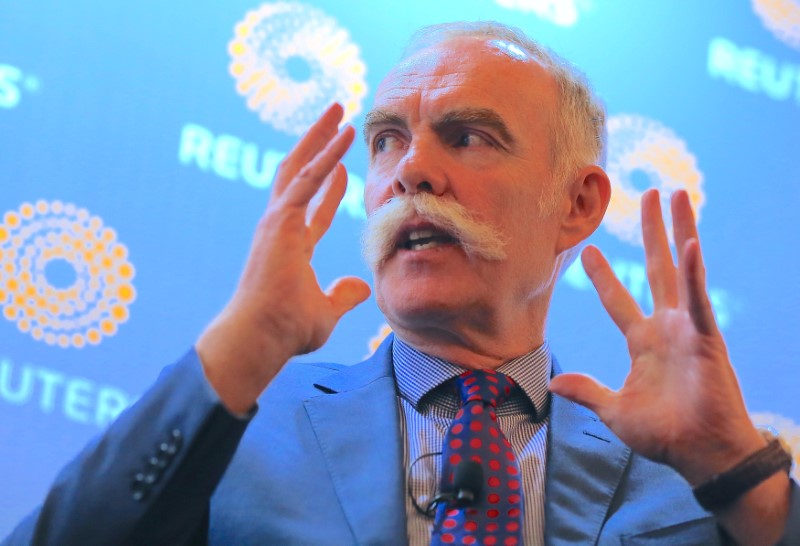By Jonathan Barrett and Tom Westbrook
SYDNEY (Reuters) - Australia's largest pension fund, AustralianSuper, is preparing for the end of the global equities run and looking to infrastructure opportunities in the United States where it believes foreign firms will in time gain greater access.
AustralianSuper is a A$120 billion ($96.6 billion) fund that seeks out major positions, chief executive Ian Silk said at a Reuters Newsmaker event on Thursday in Sydney, that can affect its burgeoning book.
Silk said an equities rally - Australia's benchmark has gained 43 percent since 2012 and the MSCI World Index has risen 67 percent over the same period - and recent strong Australian property price rises were being monitored and managed.
"The risks are principally in equity markets and for Australian super funds equity markets really determine the bulk of the absolute returns," Silk told Reuters in an interview after the event.
Just over half of AustralianSuper's most popular 'balanced' fund is invested in Australian and global equities, according to the fund's website.
It has more than doubled its cash holdings over the 12 months to June 30, from 3.8 percent to 8.8 percent, with cuts to property, private equity and international equity exposure.
"We are not finding too many asset classes great value at the moment," Silk said at the event.
While AustralianSuper recently purchased the country's biggest electricity grid with partner IFM Investors, the fund believes there are few suitable-sized local infrastructure investment plays left for a manager fueled by net cash inflows of around A$500 million per month from members.
Silk said that U.S. President Donald Trump's $1 trillion infrastructure plan represented an opportunity even if it was unclear if and how the plan would operate. He felt that any concerns against foreign investment in the United States would be overcome by its immense need to improve its infrastructure.
"When push comes to shove, they'll balance the parochialism with the party who is prepared to write the biggest check," said Silk.
"DOG'S BREAKFAST" ENERGY POLICY
In a quest to reduce fees and improve returns, AustralianSuper is building its internal management capability, as opposed to only awarding mandates to external managers.
Silk said the fund currently managed about 23 percent of its A$120 billion-odd assets internally.
"We are budgeting for a reduction in our investment costs," said Silk, referring to fee savings by hiring in-house teams.
The internalization model has had mixed results in other markets, with skeptics citing onerous risk and compliance systems which, combined with staff retention incentives, dent the expected net returns.
The fund's internal managers won't, however, likely invest in Australian energy assets until there was a coherent energy policy, Silk said.
Australia has been subject to a decade of political fights over climate policy, where the future contribution of coal-fired power generation and renewable energy is unclear.
"The energy market at the moment, to use a colloquial term, is a dog's breakfast," said Silk. "It's not a regime that is inviting for investors."
